-
Start
-
Sogongwon
-
Seorak Mountain
-
Sinhungsa
-
Heundeulbawi
-
Ulsanbawi
-
Sunrise Park
-
Naksansa-1
-
Naksansa-2
-
Naksansa-3
-
Baked Fish
-
Jungang Market
-
Tourist Hotel
-
Gaetbae(ferry) Quay
-
Abai Village
-
Sindasin Restaurant
-
Lighthouse Observatory
-
ports
-
Beach
-
Cheongchoho Lake
-
Finish
Yangyang Naksansa
Like I had to repent of my sins for running after seagulls that ruined the calm atmosphere in Seorak Sunrise Park, we headed to Naksansa, a famous temple in Gangwon-do. This place belongs to Yangyang in Gangwon-do, 6km away towards the south along the coastal road from the Sunrise Park.
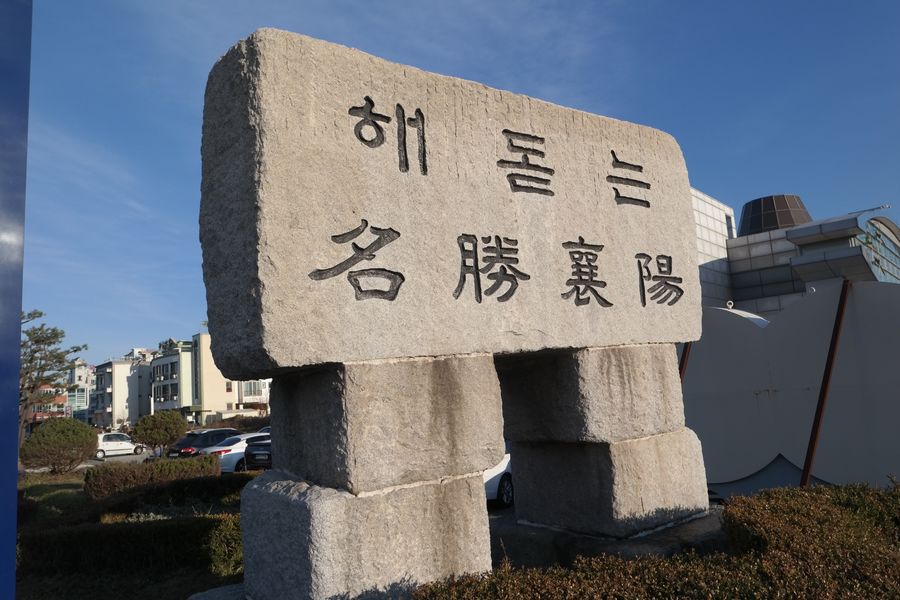
Yangyang reminds me of very clean and clear image like it has a great sunrise view over the sea and mountains but unlike what I had expected, it surprised me with so many pensions and fancy buildings in front of Naksansa and even a nightclub near the coast.
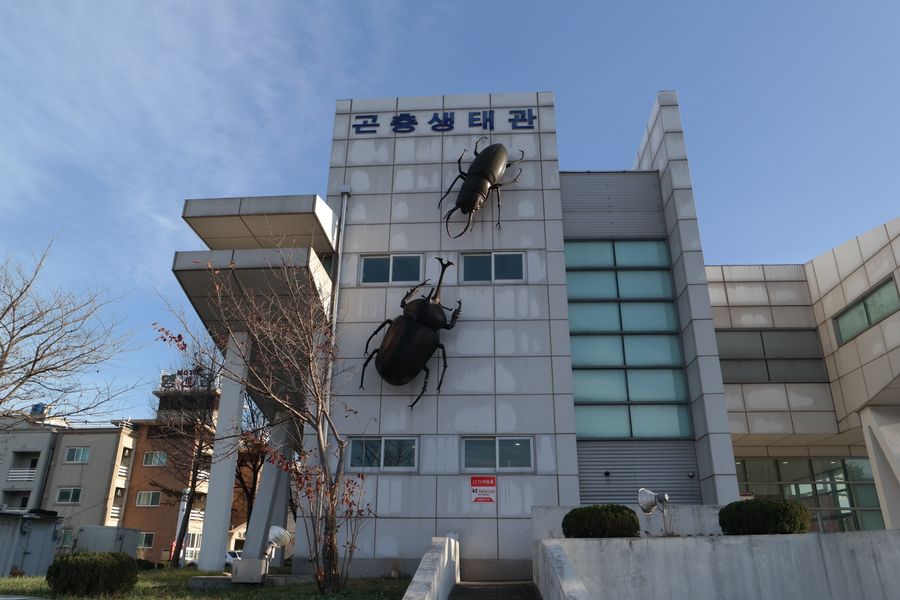
Being quite frustrated by unexpected views, we got off the bus at Naksan Bus Terminal and saw Insect Eco Center right across the street. But it looked quite empty since most tourists come here to see nature like Naksan Beach or Naksansa temple.
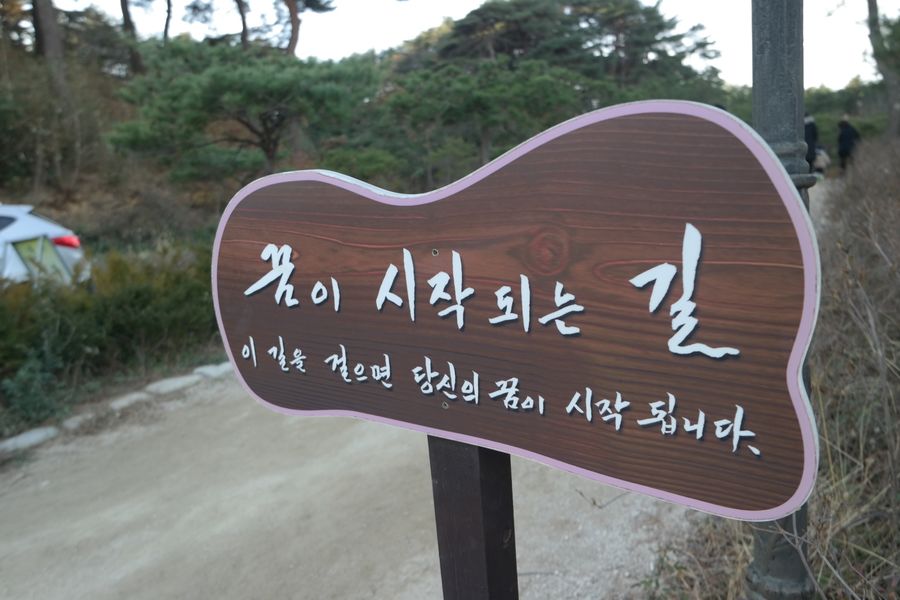
We also just passed by a big parking lot with dozens of tour buses parked and a souvenir store, and stepped on dirt road that leads to Naksansa. 'A path where your dream begins'.
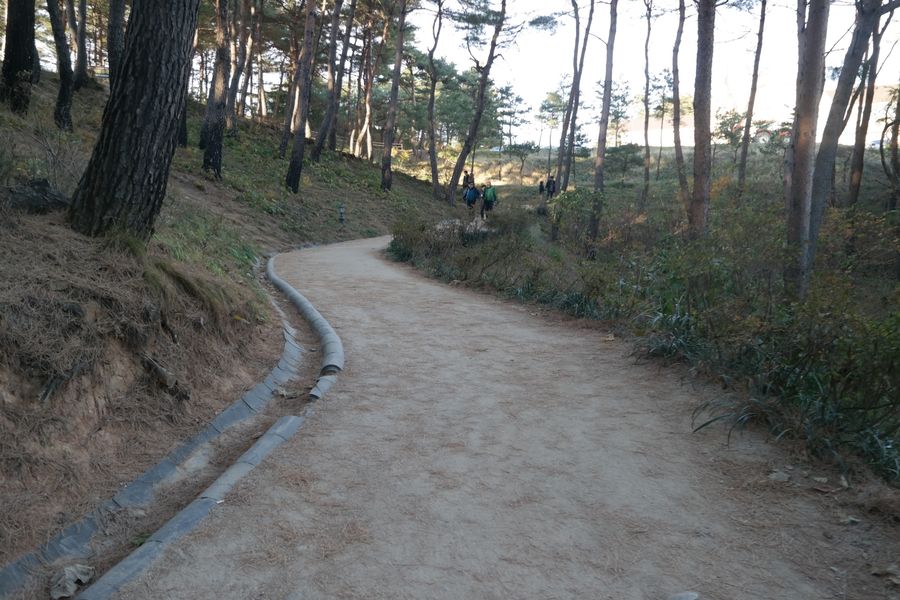
Just like it says, it's quite a comfortable path that you can walk up easily while you have a walk unlike Seorak Mountain trail.
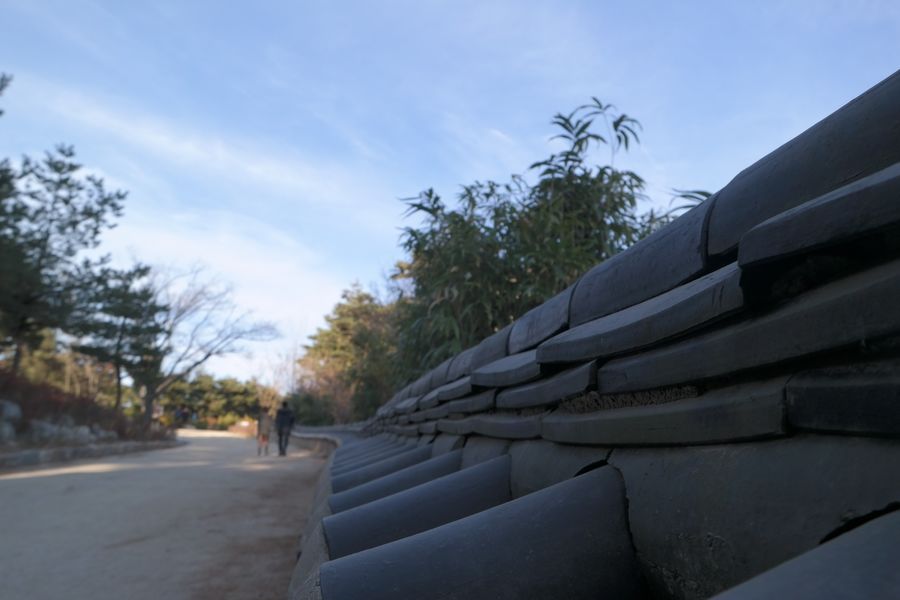
Before long, the trail becomes flatter along low stone walls. Thankfully, this Naksansa, unlike other temples, was not on steep hills that made us so happy. Plus, the sun was setting behind the mountain so just walking along the trail was romantic enough.
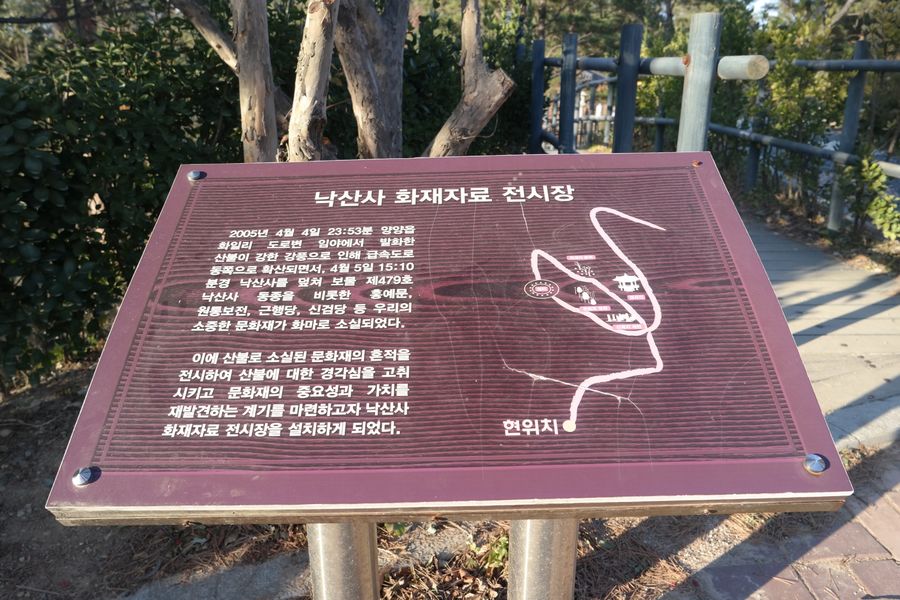
I saw on the news that there was a big fire ten years ago that burned most of the trees and temple buildings. So there's an exhibition of data about that fire not to forget that painful history. But it was underground so we decided to stop by after we took a look around the temple.
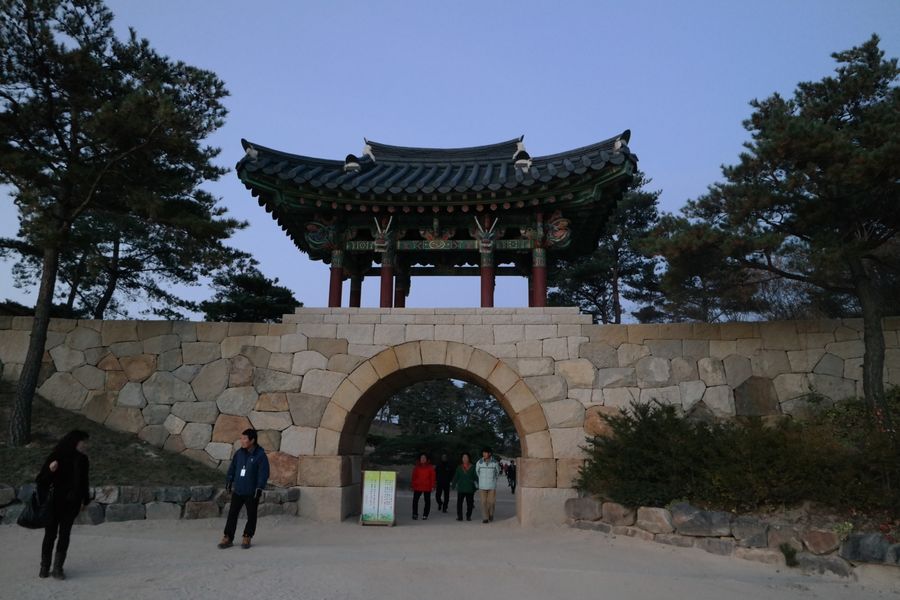
Iljumun of Naksansa was under the mountain that looks like a small hill so instead, there stood a stone gate that seemingly was newly-built. This is not just a fortress(?) for ticketing but the arch of a gate consisting of 26 granites from each town when the King Sejo visited in Joseon Dynasty era.
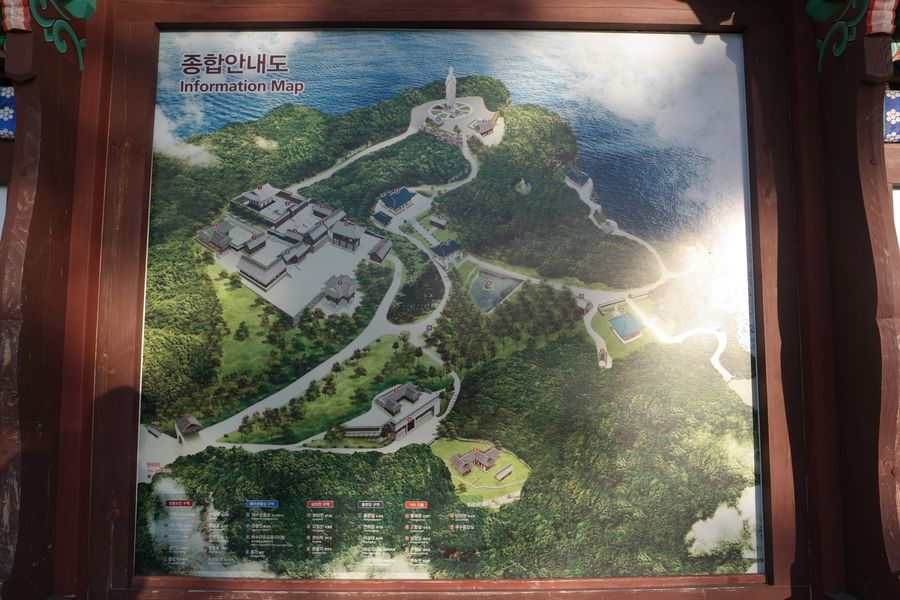
Before we entered the arch of a gate, we went through the guide map of Naksansa. There are four sections to see here. The center section has Wontongbojeon, second section is seashore hills on which Haesu Gwaeum Statue is located, third section is near the pond where Botajeon is located, and the last section is seashore cliff where there are Uisangdae Pavilion and Hongryeonam rock.
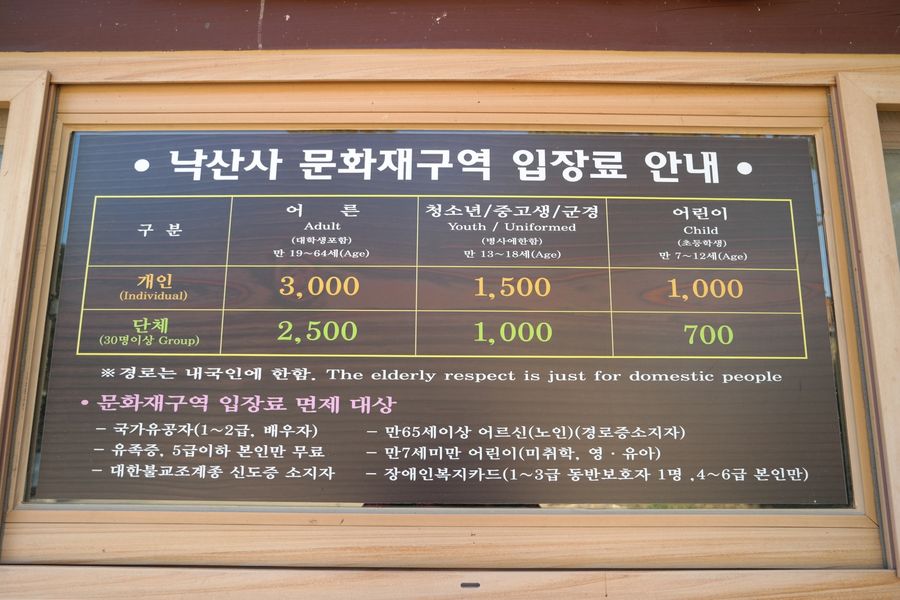
The admission fee is 3,000 won for one adult. It's cheaper than other famous temples like Bulguksa Temple in Gyeongju. Plus I was happy to be a little help to restore the temple from fire.
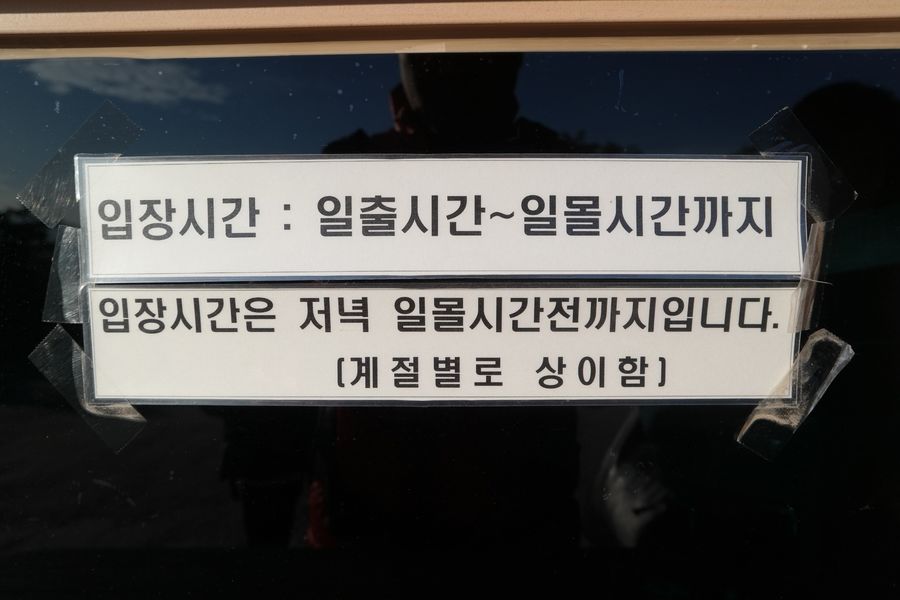
It's on the seashore so the opening or closing time has not been set for the safety of tourists. Unless there's special occasion, you're allowed to get in before sunset so if you're from a far city, you'd have to inquire the time in advance.
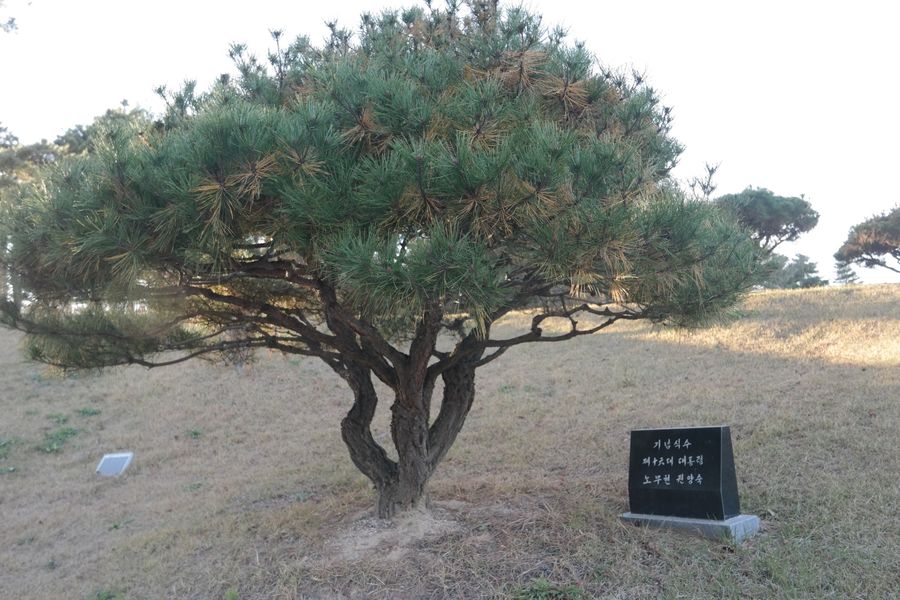
When you enter the gate, you'll see trees are densely planted along the path. They're not old trees but each one was planted by famous people in Korea. First tree planted by previous President No Mu-hyeon and pre-First Lady Gwon Yang-sook was welcoming us.
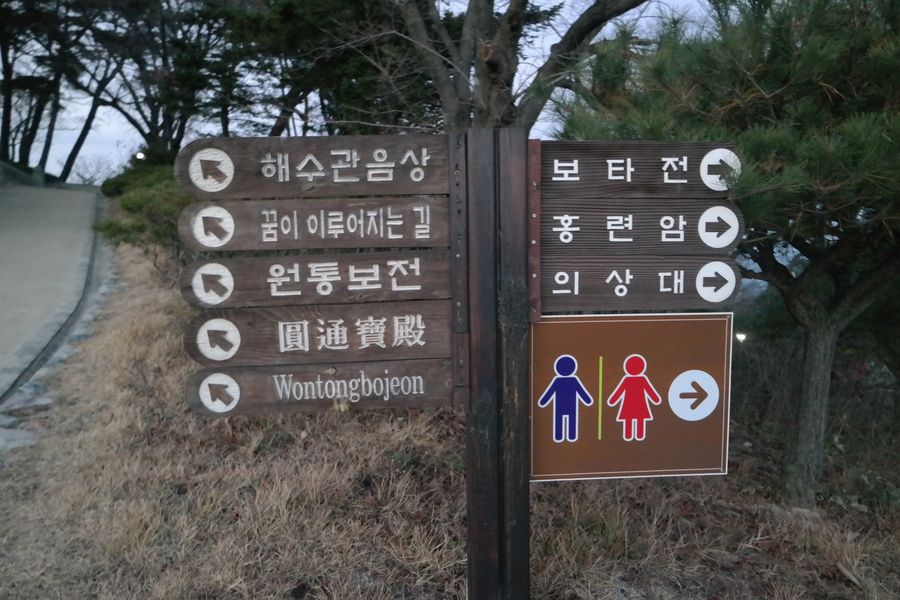
Not long after we started walking along the trees planted by politicians we saw on TV, we saw a three-way intersection. The left path is a path on the ridge to Haesu Gwaneum Statue and Wontongbojeon and the right way goes down to seashore cliff. Uisangdae Pavilion would look beautiful by the time the sun sets so we headed to the left first.
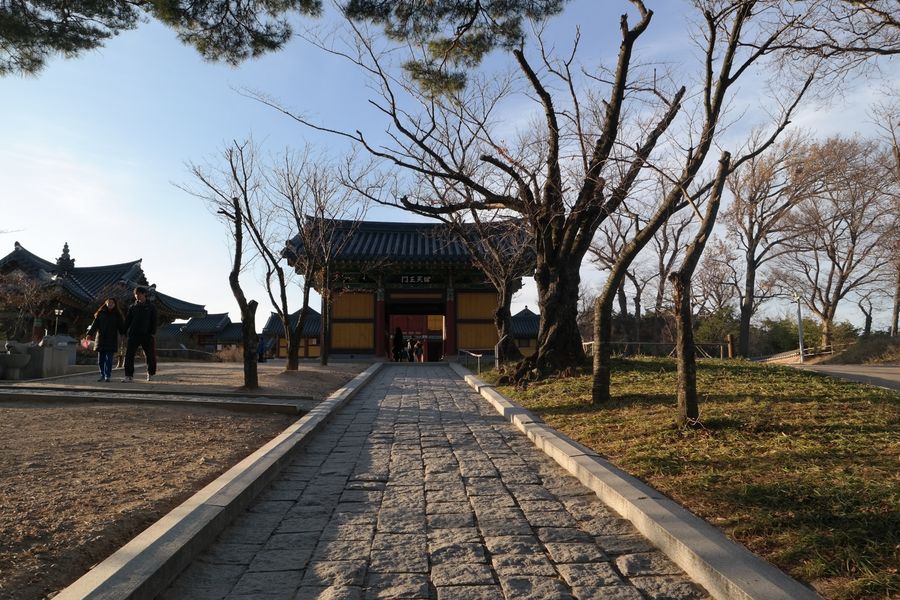
Actually, Naksansa is a branch temple of Sinhungsa but it is also famous as one of three GwaneumDoryang. Even before we took 20 steps from the intersection, we climbed a few stone stairs and saw a big strange-shaped tree and the Four Divas protecting the path.
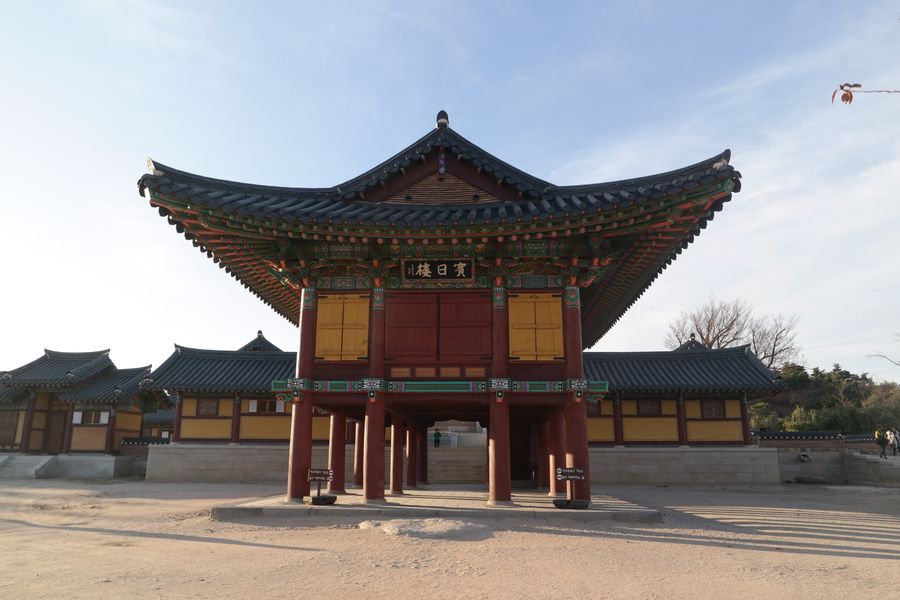
As we passed the Four Divas gate, the eaves of Binilru were magnificently standing, a tower that greets the sun. But I felt sad that it was restored one, not the original one.
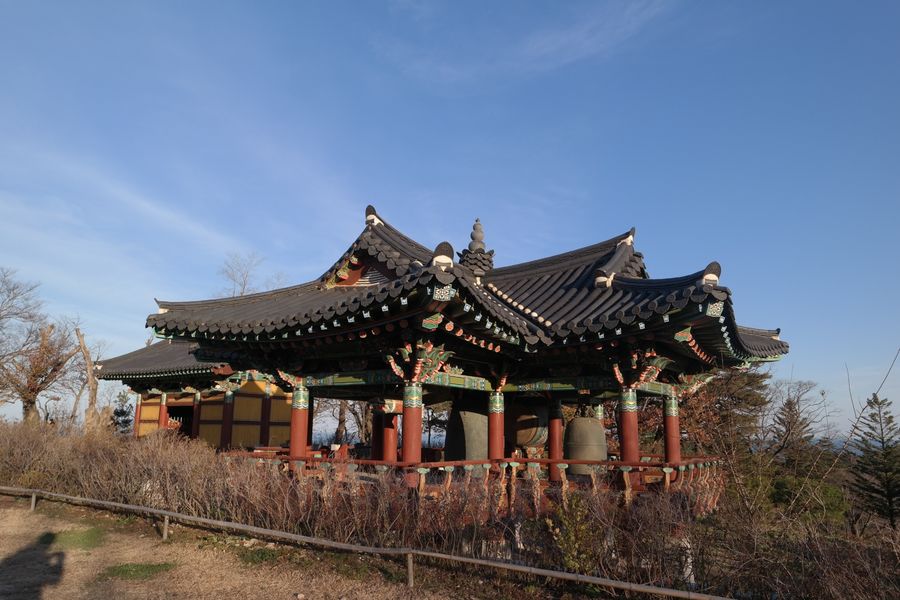
Even the bell pavilion had a new bell and drum instead of the bronze bell, which was designated as a treasure. It's so devastating that even bronze bell was met in the fire.
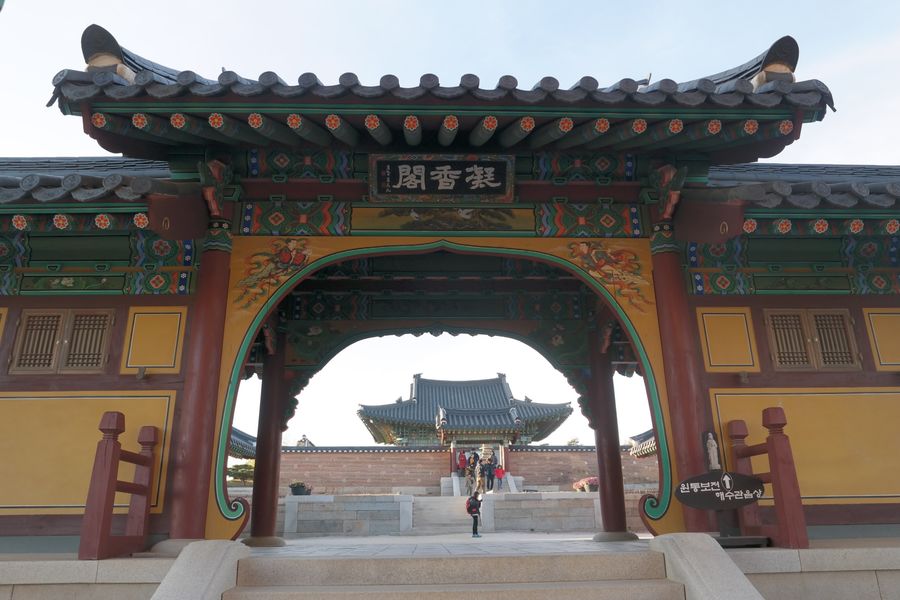
I could see a part of Wontongbojeon over the gate of Eunghyanggak, Yosa, which is a temple dormitory. Indeed, most of temples use similar names but Naksansa has quite special names for pavilion and Buddhist sanctuary.
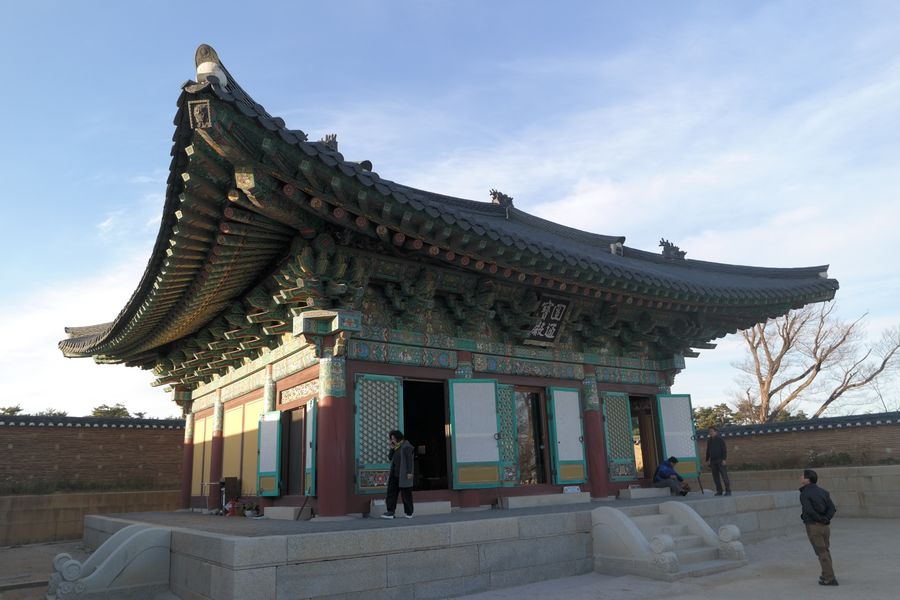
After Eui-sang, the Buddhist master, met Avalokitesvara Bodhisattva here and received a crystal from him, he built Naksansa as he was requested and Wontongbojeon is that spot. So Lacquer Seated Avalokitesvara is placed(treasure No. 1362) inside Wontongbojeon.
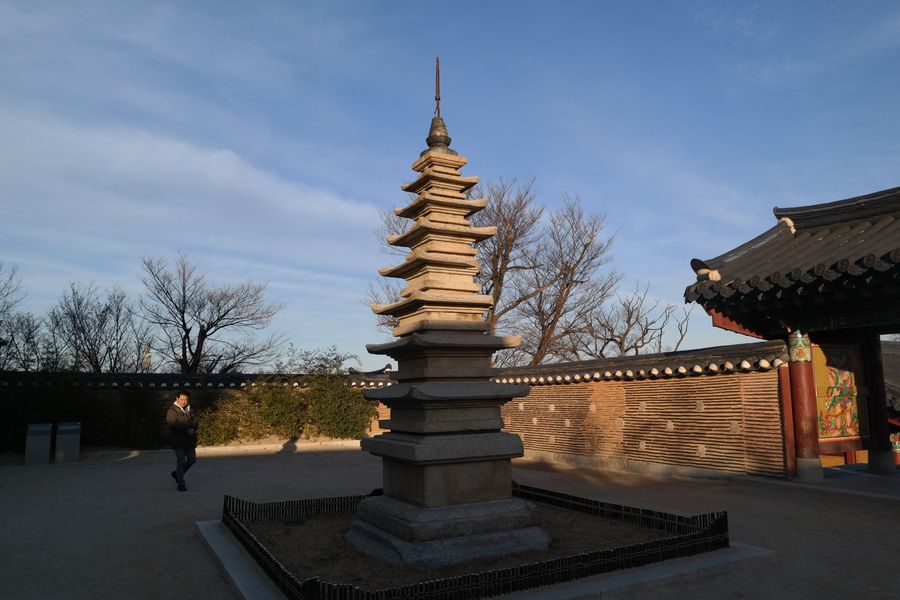
And there stood another treasure in front of Wontongbojeon. It is Naksansa 7 Story Stone Pagoda(treasure No. 499). Strangely, it was built in the Joseon Dynasty era when the decline Buddhism occurred, not in the Koryo Dynasty or the period of the Three States.
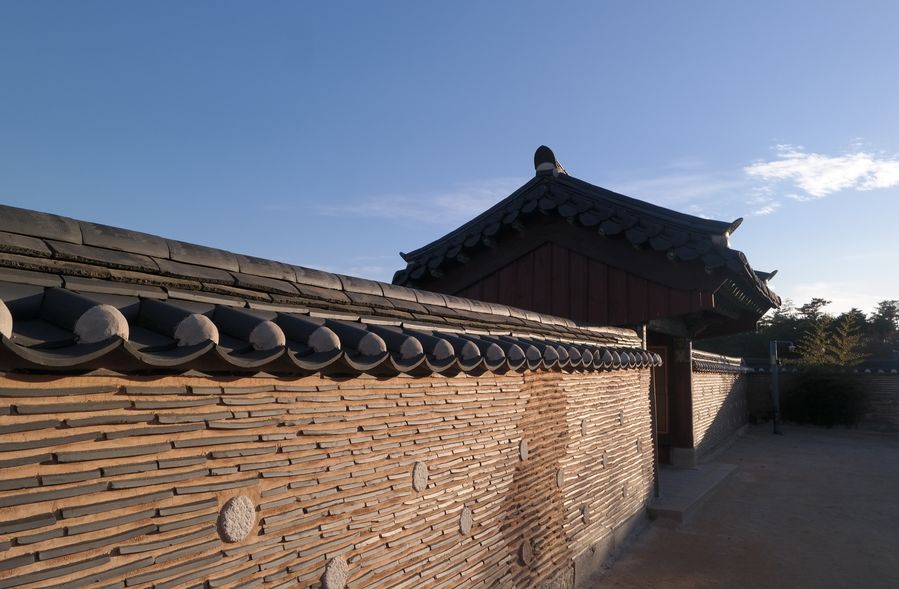
Another thing you should watch in Wontongbojeon is walls made in Joseon Dynasty era that is called Wonjang(Gangwon-do tangible cultural asset No.34). Wonjang is very rare in temple architectures that surround Buddhist sanctuary such that it signifies a holy place as well as it serves as a sculpture.










